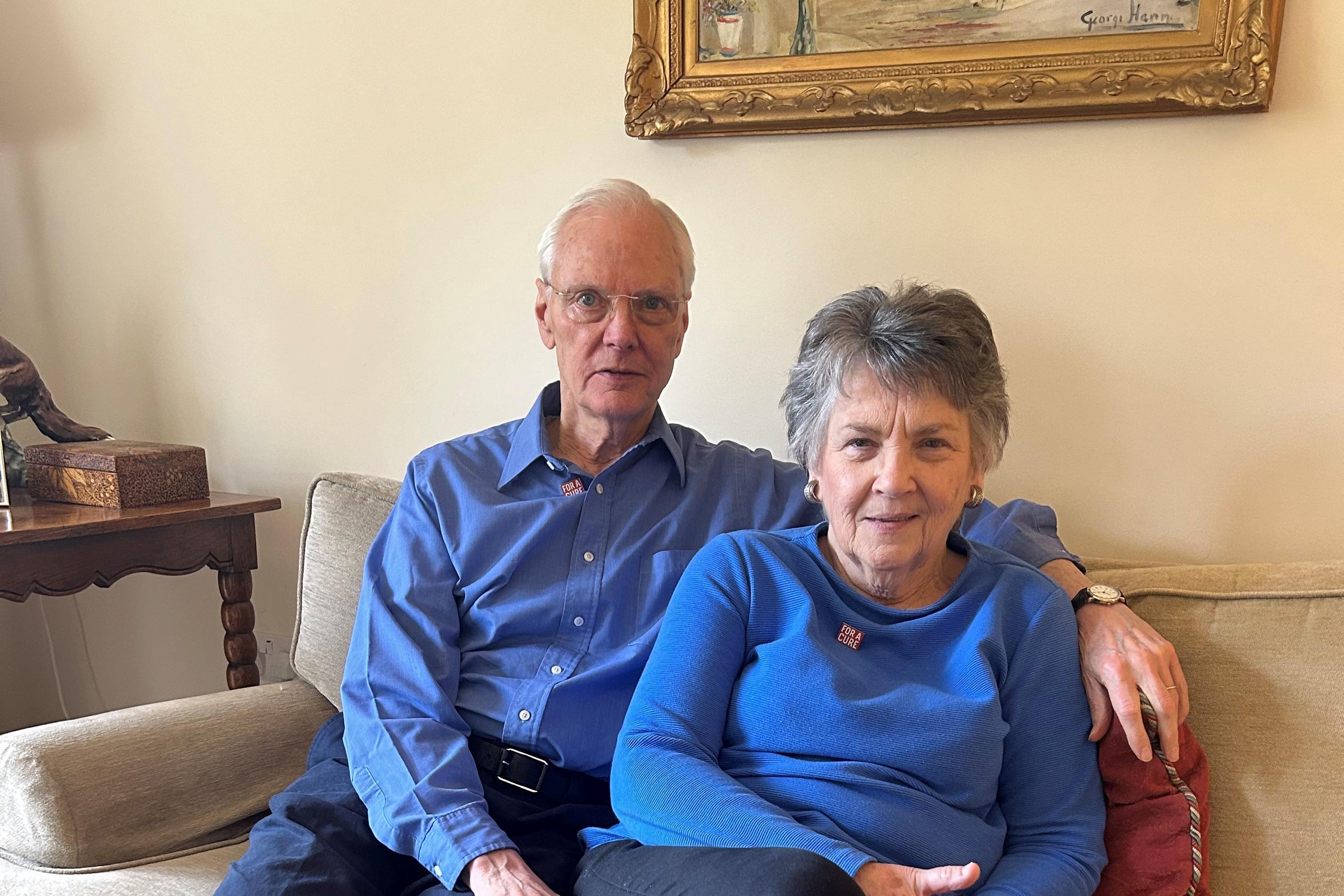Patient on lecanemab trial says he is able to ‘live a full life’
Larry Woelk was diagnosed with mild cognitive impairment in 2018.

Your support helps us to tell the story
From reproductive rights to climate change to Big Tech, The Independent is on the ground when the story is developing. Whether it's investigating the financials of Elon Musk's pro-Trump PAC or producing our latest documentary, 'The A Word', which shines a light on the American women fighting for reproductive rights, we know how important it is to parse out the facts from the messaging.
At such a critical moment in US history, we need reporters on the ground. Your donation allows us to keep sending journalists to speak to both sides of the story.
The Independent is trusted by Americans across the entire political spectrum. And unlike many other quality news outlets, we choose not to lock Americans out of our reporting and analysis with paywalls. We believe quality journalism should be available to everyone, paid for by those who can afford it.
Your support makes all the difference.A man with memory problems has said he has been able to “live a full life” while taking part in a trial of the drug lecanemab, as his symptoms have “plateaued”.
It comes after regulators announced the treatment had been approved for use in Great Britain, but its rollout on the NHS in England was recommended against due to costs.
Lecanemab, developed by pharmaceutical company Eisai and sold under the brand name Leqembi, is a targeted antibody treatment binds to amyloid, a protein which builds up in the brains of people living with the condition.
My memory assessments have been unchanged since I started on lecanemab
It is designed to help clear the build-up and slow down cognitive decline.
Larry Woelk, 77, from east Hampshire, has been on a trial of the drug since 2020 after being diagnosed with mild cognitive impairment (MCI), a condition that can increase a person’s risk of developing dementia.
He has been having lecanemab through an IV infusion every two weeks at the Memory Assessment and Research Centre in Southampton.
Mr Woelk said: “When I first went on the trial my memory was getting worse and worse. Not quickly, but I could tell.
“But since taking lecanemab I feel that the progression of my symptoms has plateaued. My memory assessments have been unchanged since I started on lecanemab.”
The retired business executive first noticed problems with his memory in 2016, when he was finding it difficult to absorb information.
Mr Woelk initially passed a memory test, but an MRI scan in 2018 eventually confirmed he had MCI.
Mr Woelk’s wife Rita added: “We believe the drug has been beneficial to Larry. There has been some decline, but it has been gradual and subtle.
“He is still able to live a full life. He is able to drive, go out on bike rides and socialise.”
The couple, who are supporters of Alzheimer’s Research UK, both have experience with dementia in their families; Mr Woelk’s mother and aunt died with Alzheimer’s while Mrs Woelk’s sister has the disease.
Mrs Woelk added: “We feel very fortunate, but we know our situation is not the case for everyone who has Alzheimer’s.
“We hope that now there is a treatment that is proven to slow down this disease, it will bring Alzheimer’s out of the shadows and encourage people when they first notice a problem to seek help and get a diagnosis.”
The Medicines and Healthcare products Regulatory Agency (MHRA) announced on Thursday that it had deemed lecanemab efficient at slowing Alzheimer’s disease.
The drug is the first treatment of its kind to be licensed for use in Great Britain.
However, health service spending watchdog the National Institute for Health and Care Excellence (Nice) recommended it should not be rolled out on the NHS in England as its benefits are “just too small to justify the significant cost”.
Nice estimates about 70,000 adults in England would have been eligible for treatment.
A public consultation on its draft guidance will close on September 20.